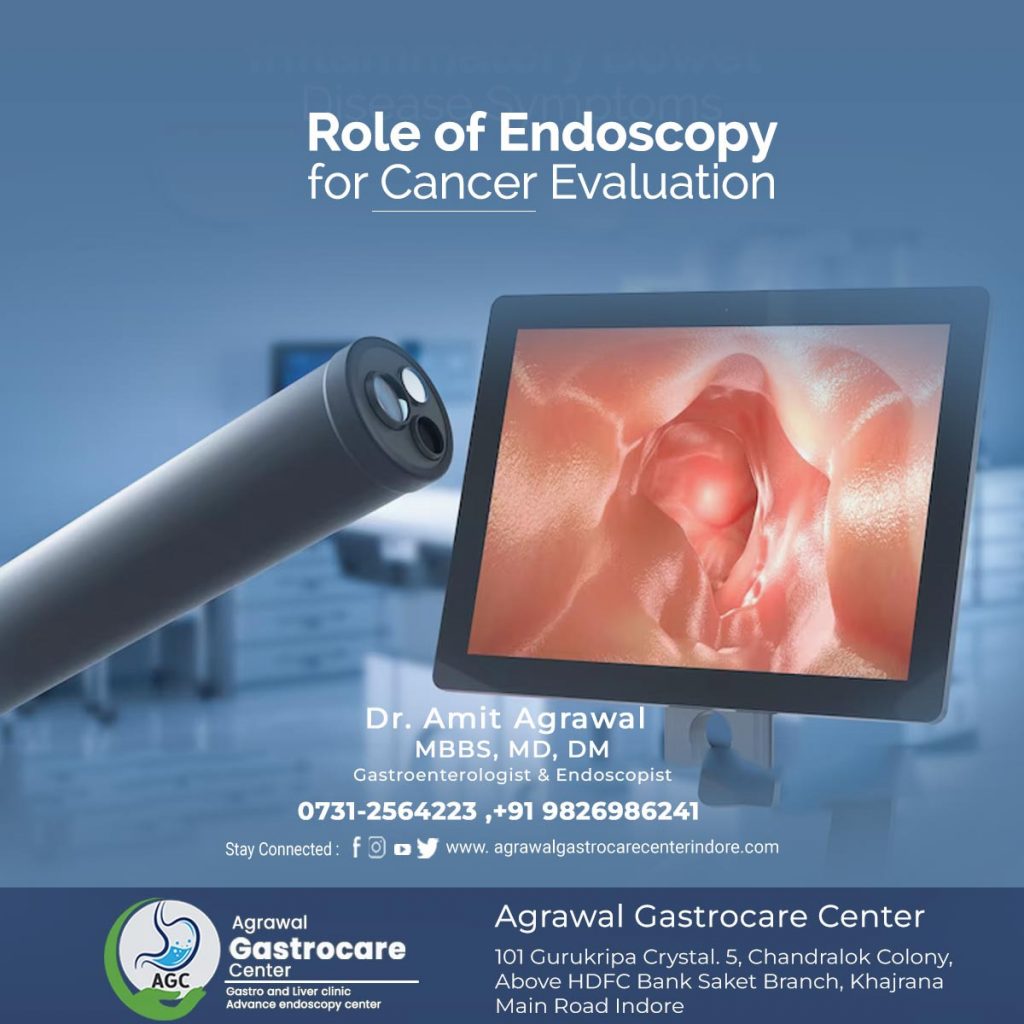Role of Endoscopy for Cancer Evaluation – Agrawal Gastrocare Center Indore
What is Endoscopy?
Endoscopy is a medical procedure used to visualize and examine the interior of the body using a flexible tube with a light and a camera called an endoscope.
This technique allows doctors to observe and assess internal organs and structures without the need for invasive surgery.
Overall, endoscopy is a valuable tool in modern medicine, enabling accurate diagnoses, guiding treatments, and minimizing the need for more invasive surgical procedures.
The endoscope transmits real-time images to a monitor, enabling the doctor to carefully examine the tissues and identify any abnormalities.
Endoscopic operations are frequently simple and can be carried out through the mouth, anus, or tiny incisions. These methods can be used to look into, identify, or treat a variety of illnesses.

Role of Endoscopy for Cancer Evaluation
- Endoscopy plays a crucial role in the diagnosis and management of cancer in various parts of the body. Specifically, endoscopy for cancer involves the use of specialized instruments called endoscopes to visualize the affected areas and obtain tissue samples for further examination.
- For gastrointestinal cancers, such as esophageal, stomach, or colorectal cancer, endoscopy allows doctors to directly inspect the inner linings of these organs. The endoscope can identify abnormal growths, tumors, or areas of inflammation.
- During the procedure, the doctor may also perform a biopsy by removing a small tissue sample for laboratory analysis. In addition to diagnosing cancer, endoscopy plays a crucial role in cancer staging.
- By assessing the depth of tumor invasion into the surrounding tissues and evaluating the involvement of nearby lymph nodes, endoscopic ultrasound (EUS) and other advanced endoscopic techniques provide valuable information to determine the stage of cancer.
- Endoscopy can guide treatment planning by facilitating therapeutic interventions. In some cases, endoscopic procedures can be used to remove small, early-stage tumors without the need for more invasive surgery.
- Endoscopic techniques, such as endoscopic mucosal resection (EMR) or endoscopic submucosal dissection (ESD), offer a less invasive approach to the removal of localized tumors.
Dr. Amit Agarwal
Director & Gastroenterologist Consultant
Agarwal Gastrocare Center Indore



